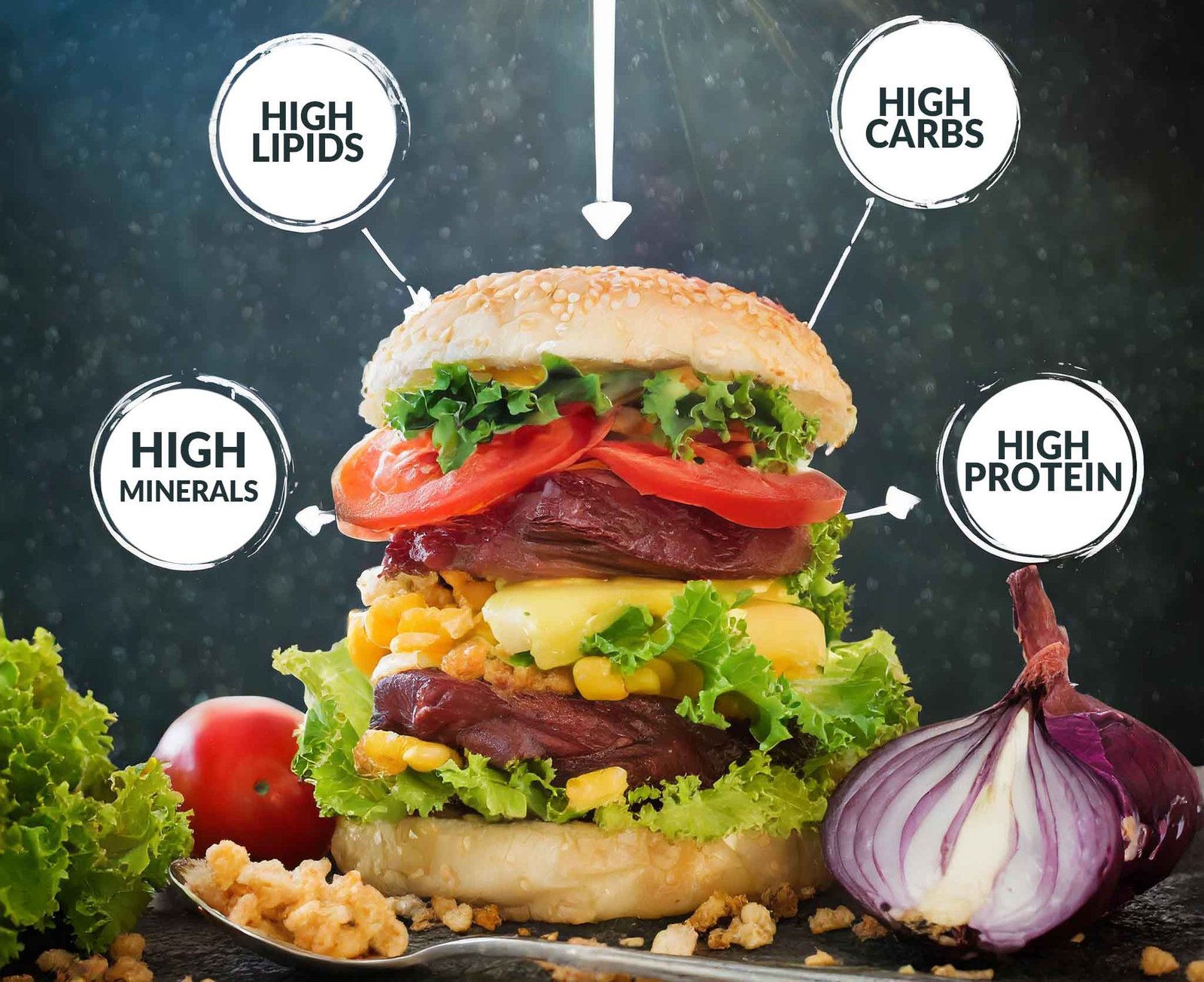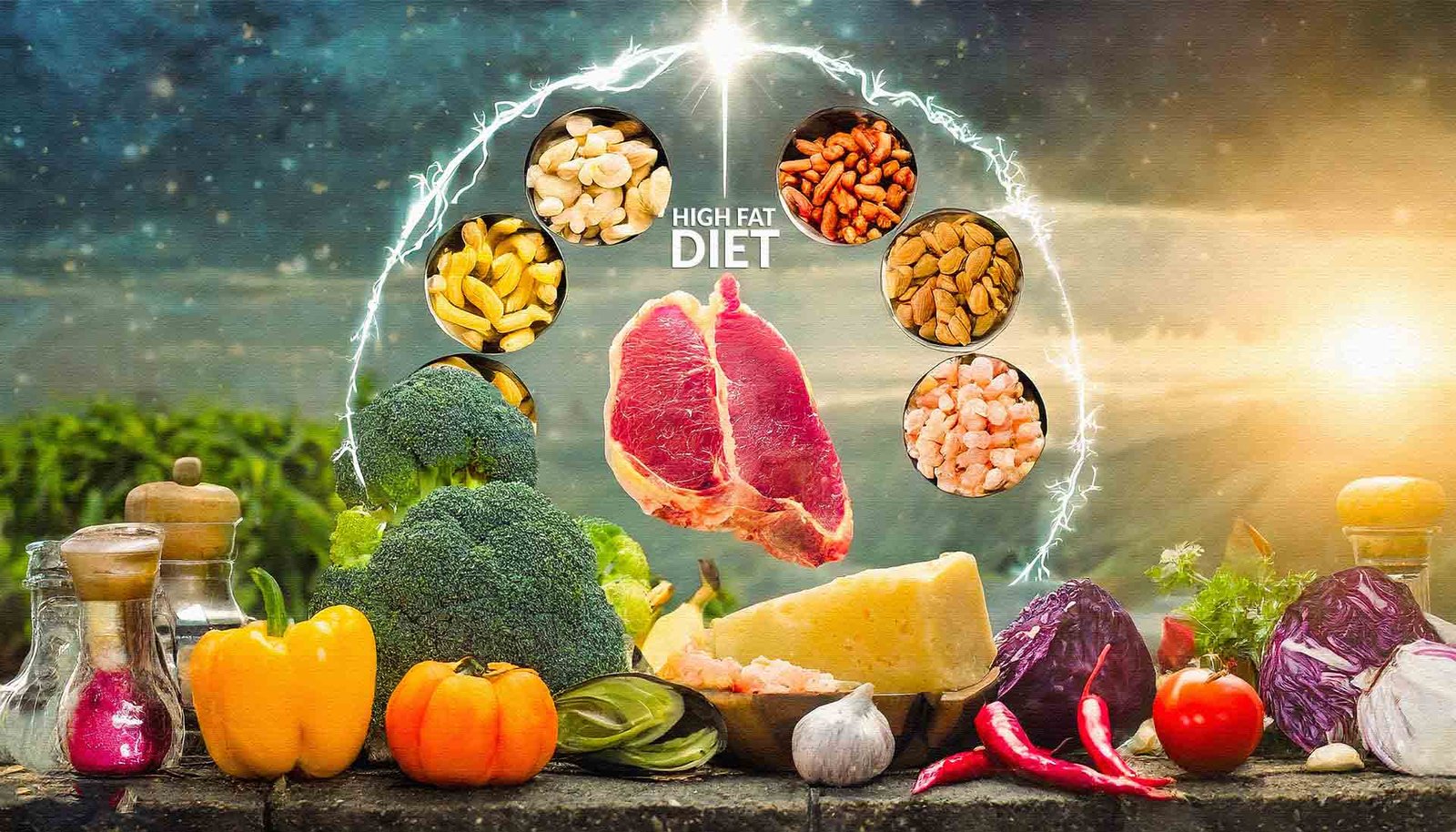HEALTH BLOG
Link Between High-Fat Diets and Increased Risks for Colon Cancer
-
 Rahul Priydarss
Rahul Priydarss - January 19, 2024

H
ere Colon cancer remains a significant health concern, and research continues to explore various factors contributing to its development.
Table of Contents
Introduction:
One emerging area of interest is the impact of diet, specifically high-fat diets, on the increased risk of colon cancer. In this article, we will delve into the scientific evidence linking high-fat diets to elevated risks of colon cancer and explore the implications for individuals seeking to make informed dietary choices.
Understanding Colon Cancer:
Colon cancer, also known as colorectal cancer, originates in the colon or rectum and often develops from precancerous polyps. Lifestyle factors, including diet, play a crucial role in the development and prevention of this type of cancer. While genetics and age are non-modifiable risk factors, dietary choices can significantly influence an individual’s susceptibility to colon cancer.
The Role of High-Fat Diets:
High-fat diets, characterized by an increased intake of saturated and trans fats, have been associated with various health concerns, and emerging research suggests a connection with colon cancer. These diets often contribute to obesity and are linked to chronic inflammation, insulin resistance, and alterations in the gut microbiota – all factors that can contribute to the development and progression of cancerous cells in the colon.
Scientific Evidence:
Several studies have investigated the relationship between high-fat diets and colon cancer risk. A meta-analysis published in the Journal of the National Cancer Institute found that individuals with the highest intake of dietary fat had a significantly increased risk of developing colon cancer compared to those with lower fat consumption. The type of fats consumed also matters, with saturated and trans fats showing a more pronounced association with elevated risk.
Moreover, high-fat diets have been shown to influence bile acid metabolism, leading to an environment conducive to the development of colon cancer. Bile acids, essential for fat digestion, can undergo chemical changes influenced by high-fat diets, potentially promoting carcinogenesis in the colon.
Inflammation and Insulin Resistance:
High-fat diets contribute to chronic inflammation, a known factor in cancer development. Inflammation in the colon can create an environment favorable to the initiation and growth of cancer cells. Additionally, these diets can lead to insulin resistance, where cells become less responsive to insulin, a hormone crucial for blood sugar regulation. Insulin resistance has been linked to an increased risk of colon cancer.
Practical Dietary Changes:
Reducing the risk of colon cancer involves making informed dietary choices. Opting for a balanced diet that includes a variety of fruits, vegetables, whole grains, and lean proteins can provide essential nutrients while minimizing the intake of saturated and trans fats. The American Cancer Society recommends limiting red and processed meat consumption, as these have been associated with an increased risk of colorectal cancer.
Incorporating omega-3 fatty acids, found in fish and certain plant sources, may be beneficial, as these fats have anti-inflammatory properties. Additionally, maintaining a healthy weight through regular physical activity and avoiding excessive alcohol consumption can further contribute to colon cancer prevention.

Frequently Asked Questions (FAQs):
Q: Can I still include fats in my diet without increasing the risk of colon cancer?
A: Yes, it’s about the type of fats. While saturated and trans fats are linked to higher colon cancer risk, incorporating healthier fats like omega-3 fatty acids can be beneficial. Aim for a balanced diet with a variety of nutrient-rich foods to support overall health.
Q: Is the risk of colon cancer solely related to dietary factors?
A: While diet plays a significant role, other factors like genetics, age, and lifestyle contribute to colon cancer risk. Adopting a healthy lifestyle, including regular exercise, maintaining a healthy weight, and limiting alcohol consumption, complements dietary choices for overall colorectal health.
Q: How quickly can dietary changes impact the risk of colon cancer?
A: Dietary changes take time to show significant effects. Consistently choosing a balanced diet, low in saturated and trans fats, and incorporating healthier lifestyle habits can contribute to long-term colorectal health. It’s a gradual process that supports overall well-being.
-Remember, Always consult with healthcare professionals or Doctors for personalised advice related to medical conditions.
Some Patient Reviews:
Review 1: Unveiling the High-Fat Colon Cancer Connection: This article expertly navigates the intricate link between high-fat diets and increased colon cancer risks. Backed by scientific evidence, it emphasizes the importance of understanding the types of fats consumed and offers practical advice on adopting a balanced, nutrient-rich diet for optimal colorectal health.
Review 2: Digestible Insights on Diet and Colon Cancer: A well-researched exploration of how high-fat diets impact colon cancer risk. The article not only delves into the science but provides actionable steps for readers to make informed dietary choices. It strikes a balance between scientific depth and practical guidance.
Review 3: Navigating Colon Health Through Nutrition: This informative piece decodes the complex relationship between high-fat diets and colon cancer. Clear explanations, coupled with practical tips, make it accessible. A valuable read for those seeking to understand and mitigate the risks associated with dietary choices and colorectal health.

Conclusion:
As research continues to unveil the intricate connections between diet and colon cancer, it becomes increasingly evident that high-fat diets may pose risks to colorectal health. Individuals can take proactive steps to reduce their risk by adopting a balanced, nutrient-rich diet, engaging in regular physical activity, and making lifestyle choices that promote overall well-being. By staying informed and making conscious decisions, individuals can play an active role in minimizing the impact of high-fat diets on colon cancer risks.
Previous Post





